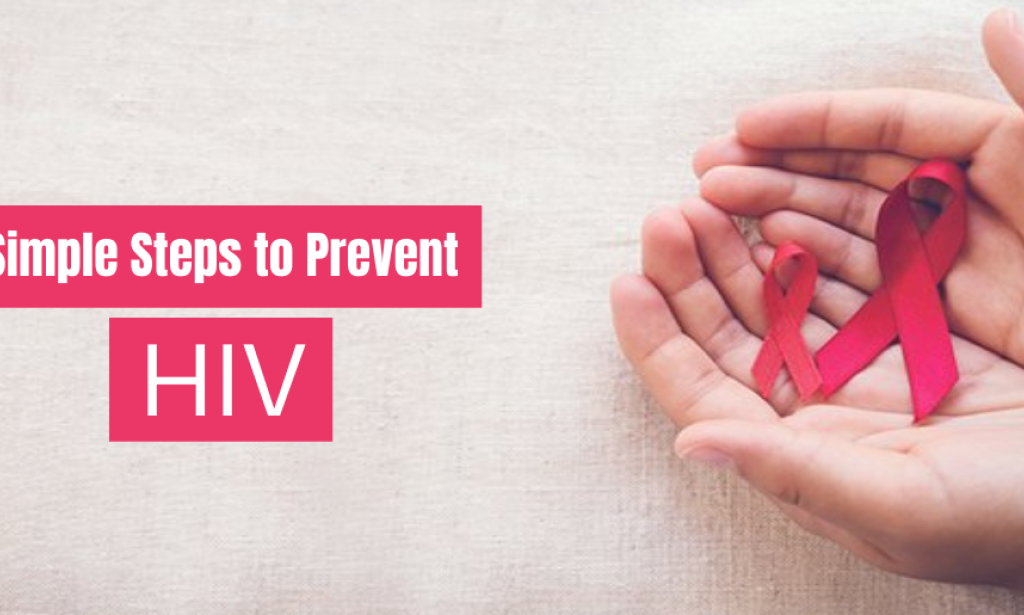HIV is a common STD, so taking conscious steps to prevent it is essential, especially if you are sexually active. Preventing HIV is not only about adhering to specific rules; it boils down to having a belief system, understanding who you are, and taking steps to protect yourself and others from getting infected.
You would need to take an informed and holistic approach that helps you understand how the infection occurs and ways to prevent it. This would also help you create an individualised HIV-prevention strategy.
Taking the following steps and getting a regular sexual health check can help prevent HIV.
Know the risks
A common question most people ask concerning HIV is whether they can get infected through a particular means. There are several misconceptions about the transmission of HIV and a constant misunderstanding about where you can contract the infection. Most people underestimate potential risks factors, while some persons overestimate certain risks of contracting HIV.
Successfully preventing HIV starts from gathering facts about the infection and understanding its mode of transmission. You also need to identify activities that increase your risk of contracting HIV.
Take PrEP
Pre-exposure Prophylaxis (PrEP) is an HIV prevention strategy that involves daily intake of an antiretroviral pill to reduce the risk of getting HIV significantly. Taking PrEP is a criticalaspect ofthe overall HIV-prevention strategy. It helps reduce the risk of HIV infection in at-risk populations.
Ensure you talk to your doctor to know if taking PrEP is the right HIV prevention strategy for you.
Stay undetectable
People with HIV can have undetectable levels of HIV viral load and cannot transmitthe virus to other people if they take their medications and receive the right treatment. Treatment as prevention (TaSP) is an evidence approach that has helped reduce the spread of HIV.
A study from 2010 – 2018 of 782 mixed-status couples who engaged in unprotected sex found no incidence of HIV transmission in the couples. This was possible through TaSP.
Use condoms
Aside from abstinence, using condoms is the most reliable way of preventing pregnancy and different STIs, including HIV. Although PrEP and TasP can help prevent HIV, they do not protect against pregnancy and other STIs.
Wearing condom to prevent other STIs is also important because contracting other STIs increases the risk of getting HIV – these STIs affect the integrity of anal and vaginal tissues. It not only applies to ulcerative infections like syphilis but also any infection resulting in acute genital inflammation.
Conceive safely
Most HIV-infected couples are serodiscordant. This means one partner is HIV-negative and the other is HIV-positive.
Advances in retroviral therapy have made it easier for serodiscordant couples to conceive with a reduced risk of transmitting the virus to the uninfected partner.
Avoid transmission from mother to child
Prevention of mother-to-child transmission involves all stages during pregnancy, from antenatal to postnatal care. Early intervention increases the chances of preventing transmission of HIV during delivery.
Getting the proper perinatal care, including antiretroviral therapy for the child and mother, reduces the risk to less than 2%.
Avoid sharing needles
Injecting Drug Users (IDUs) account for a large percentage, about 20 – 40%, of HIV-infected persons. However, the risk of contracting HIV also affects partners of drug users who are sometimes unaware of their partner’s use of drugs.
Preventing infection after exposure
Suppose you had recent exposure to HIV or think you were exposed to the virus through any sexual intercourse or other high-risk activities, you can take post-exposure prophylaxis to prevent an infection.
Most times, PEP involves taking an antiretroviral drug called Truvada (tenofovir and emtricitabine) once every day and 400mg of Isentress (raltegravir) two times daily for 28 days.
Alternatively, you would take 50mg of Trivicay (dolutegravir) once every day for 28 days.
Research has shown that taking PEP within the first 72 hours of exposure can reduce the risk of HIV infection by about 81%.
Getting tested for HIV after exposure can help set your mind at ease, so ensure you get private HIV testing near you. You can visit Sexual Health Clinic in London or contact us on 0203 475 1653 to schedule an appointment for your HIV testing. Our sexual health experts also provide PEP and PrEP to help prevent HIV infections.


You must be logged in to post a comment.